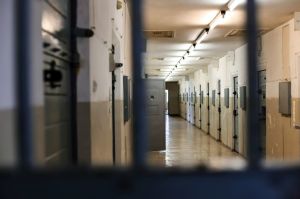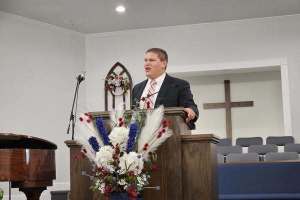Al Qaeda Cell in Turkey Accused of Planning to Bomb Churches
Indictment reveals Christian targets in Ankara, along with Parliament and U.S. Embassy.
ISTANBUL – A large-scale Al Qaeda plot to bomb “all the churches in Ankara,” as well as the Turkish Parliament and U.S. Embassy in the Turkish capital, was made public Friday.
In an exclusive splashed across the front page of the daily Taraf newspaper, contents of an official indictment against 11 alleged Al Qaeda militants arrested in July revealed the homegrown terrorist cell’s alleged plans to attack Ankara’s churches as well as their Christian clergy.
Prepared and filed by the Special Prosecutor’s Office in Ankara, the 50-page indictment outlined the militants’ revised “jihad” strategy to begin focusing their attacks against Turkey before waging war against the United States and other countries.
“It is more advantageous to wage jihad against Turkey than the United States,” documents seized in the July 14 raid near Ankara reportedly declared. “Let’s blow the Parliament into the sky!”
Quoting from deciphered CDs and other materials, the indictment noted that the extremists reportedly referred to Turkey as a “war zone,” labeling the Turkish government as “apostates” and calling the Turkish state “Satan.”
Among the CDs, detailed maps, sketches and building diagrams, police also discovered lists of the names and home addresses of Christian clergy and other church workers residing in Ankara.
The news took Christian leaders in Ankara by total surprise, according to one Turkish Christian leader in Ankara.
“No one has had any news about this until now,” he said.
In addition to chapels on Ankara’s British, French, Vatican, Italian and Greek embassy grounds, the capital city has several international churches as well as a handful of Turkish Protestant congregations.
According to Taraf, police investigators were tipped off to the militant cell’s activities by citizens living outside Ankara who filed a claim that their son had been kidnapped by Al Qaeda. Police reportedly tracked one of the suspects for six months before nabbing him a week before the others.
Starting from the city of Bursa, a branch of Turkey’s Anti-Terror police began investigations in various municipalities that resulted in the arrest of suspects last July in a duplex apartment in Sincan, a town on the outskirts of Ankara. Video footage found at the scene indicated the men had undergone training in the use of Kalashnikov rifles.
Police seized 700 kilos (1,500 pounds) of explosives, along with assault rifles, ammunition, bomb-making instructions and detailed maps of Ankara.
According to documents summarized in the indictment, Al Qaeda leaders strictly forbade the members of the cell to enroll in Turkey’s required military service, recognize the authority of Turkish courts, send their children to public schools, perform Muslim prayers under the leadership of state-salaried prayer leaders or vote in national elections. Those who disobeyed were warned they would be punished.
Further guidelines noted in the suspects’ diaries came from their leaders in Afghanistan, instructing them how to conduct themselves if arrested: “Stay relaxed under interrogation, refuse to accept charges by giving reasonable answers, and do not provide any information regarding the community.”
Although Al Qaeda’s violent interpretation of Islam receives little public backing in officially secular Turkey, Ankara admits that “dozens” of Turks have received training in Afghanistan.
The 2003 bombings of the British Consulate, a British bank and two synagogues in Istanbul that killed 58 people were attributed to Al Qaeda-affiliated operatives. A 2008 attack also blamed on Al Qaeda left three assailants and three Turkish policemen dead outside the U.S. Consulate in Istanbul.
In 2010 Turkish authorities made several mass arrests of suspected Al Qaeda members and sympathizers, indicating a significant support network for its cause within Turkey. But terrorism experts have maintained that the local group focused mainly on fundraising and recruitment in Turkey for jihad activities overseas.
In a related development, Istanbul authorities confirmed today that police were searching for three identified Al Qaeda extremists and five other individuals involved in a $3.5 million heist from a Turkish businessman’s bank account.
According to Aksam newspaper, the militants used false identities and bribed bank employees to steal the funds, designated to support the Al Qaeda cause. Four bank employees have been arrested in what police said was one of the first “fiscal terrorism” operations in Turkey.





























